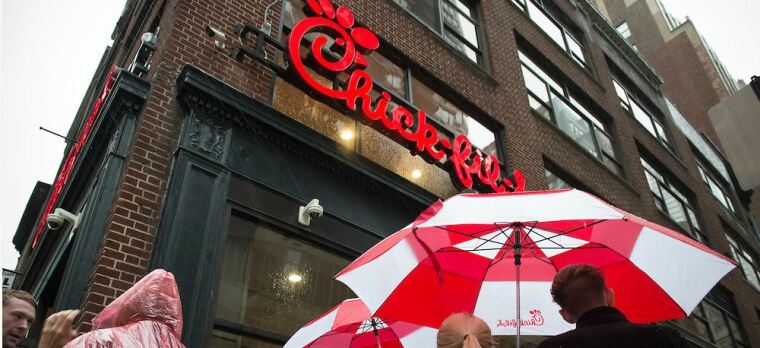Don't support human rights violations with your Christmas gifts: 3 ways to shop ethically

WINTER PARK, Fla. (Christian Examiner) – The relationship between shopping and ethics is hardly a secret anymore—but how can Christians decide which brands to support by "voting" with their wallets? Here are three ways.
1. Do a little research.
Learning about the issues at stake in the ethics of shopping is a good starting point, says Whitney Bauck in an article for Relevant magazine. "A good place to start would be by considering laborer rights, environmental impact, transparency and social impact," Bauck recommends. Wage slavery and working conditions are serious issues to keep in mind.
Numerous websites including GoodGuide and Ethical Consumer already rank major companies on transparency and sustainability. For example, according to GoodGuide's jeans rating, Patagonia earned an 8.2 out of 10 while Gap and Old Navy warranted a 6.1, but Lucky Brand and Abercrombie & Fitch received a 4.6.
Independent ranks like these, Bauck says, are "especially helpful as you try to shop in tune with your own conscience—if you're not committed to veganism but you are committed to workers' safety, scores on individual facets of a brand's practices will help you shop according to what's important to you." She emphasizes the importance of cross-referencing since the rankings can differ across website according to varying criteria.
2. Read the policies.
Take your research a step farther by seeking information from companies themselves. Usually, companies that care about ethical behavior will say so, Bauck says, as opposed to those that are silent on the issues of labor rights or sustainability.
"Whatever you do, remember that your purchases have power—and it's up to you to use that power for good."
Leah Wise, a thrift shop owner and fair trade blogger, wrote about her conflict working for a craft company that sourced materials from China. "How can a company that espouses Christian values also support sweatshop labor?" she wrote in a post. "The natural next question for me was, 'How can I claim to live like Christ if I continue to buy into labor practices that exploit and dehumanize the poor?'"
For example, Chick-fil-A advertises its foam cup recycling strategy on its website. When people said they preferred foam to paper, Chick-fil-A researched and implemented "a foam cup recycling infrastructure" across the country in order to "collect over two million cups from our restaurants each month, then process and repurpose them into items like park benches, team member name badges, and writing pens."
3. Shop locally or secondhand.
In order to avoid giving monetary support to an ethically questionable corporation, seek out local individuals or small businesses as a source of creative, individual gifts.
If you cannot afford a handmade item, seeking gifts "secondhand reduces demand for new goods while offering an economical alternative to fair trade," Wise points out.
"When we hear about factory collapses in Bangladesh killing hundreds of workers or unethical practices in clothing company supply chains, we should be incensed, but we should also be examining how we are complicit through our purchases," Kim Hunt of Micah Challenge USA, an organization dedicated to ending extreme poverty, wrote in an article for Relevant.
If you have discovered through research a brand to boycott or avoid—or to publicize and praise for its ethical practices—you should be prepared to act, Bauck commented.
Actions might include "expressing your concerns to the brand directly via their social media channels, telling others about what you've found out, redirecting your shopping dollars toward a more sustainable brand, making second-hand purchases a regular part of your life, shopping less frequently in general, or all of the above," she says.
Bauck adds, "Whatever you do, remember that your purchases have power—and it's up to you to use that power for good."